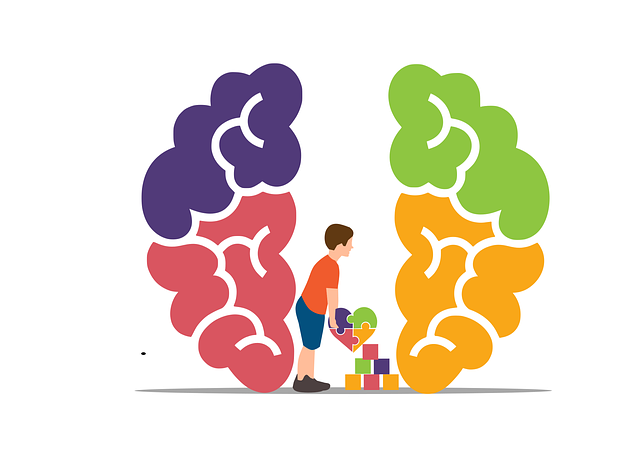Positive thinking exercises, like those offered by Parker Postpartum Depression Therapy using CBT, are effective in managing postpartum depression (PPD), a common mental health challenge for new mothers. These practices, including gratitude journaling and meditation, enhance self-care, promote culturally sensitive mental healthcare, and reduce PPD stigma through public awareness campaigns and educational programs. Incorporating these daily routines boosts resilience, optimism, and self-compassion, while tracking progress in a Mental Wellness Journal provides tangible evidence of mindset shifts. Advocacy from mental health awareness groups empowers individuals to actively engage in their healing process for lasting well-being.
Positive thinking exercises have emerged as a powerful tool in addressing postpartum depression, offering a gentle yet transformative approach to mental well-being. This article delves into the implementation of these practices, guiding new mothers through the process of adopting a more optimistic mindset. We explore effective techniques, from daily practice rituals to strategies for overcoming challenges, ensuring a sustainable path towards recovery. Additionally, we discuss measuring success and the impact on overall well-being, providing valuable insights tailored to Parker’s postpartum depression therapy.
- Understanding Positive Thinking Exercises for Postpartum Depression
- Integrating Daily Practice: Techniques for Consistent Positive Thinking
- Overcoming Challenges: Strategies to Stay Motivated and Committed
- Measuring Success: Evaluating the Impact of Positive Thinking on Well-Being
Understanding Positive Thinking Exercises for Postpartum Depression

Positive thinking exercises have emerged as a valuable tool in managing postpartum depression (PPD), a common yet complex mental health issue affecting new mothers. These exercises, often integrated into therapy sessions, focus on shifting an individual’s mindset towards more optimistic and empowering thoughts. Parker Postpartum Depression Therapy, for instance, utilizes techniques like cognitive-behavioral therapy (CBT) to help mothers challenge negative thought patterns and replace them with positive affirmations.
The effectiveness of these practices lies in their ability to enhance self-care and promote cultural sensitivity within mental healthcare. Public Awareness Campaigns Development plays a crucial role in educating expectant parents about the signs of PPD, encouraging open conversations, and reducing stigma. Cultural Sensitivity in Mental Healthcare Practice is essential, as it ensures that therapies cater to diverse populations, considering unique perspectives and experiences. Mental Health Education Programs Design can further equip both mothers and healthcare providers with strategies to recognize and address PPD early on, fostering a supportive environment for recovery.
Integrating Daily Practice: Techniques for Consistent Positive Thinking

Integrating daily positive thinking practices into your routine is a powerful tool for enhancing mental health and overall well-being. This can be particularly beneficial for individuals recovering from postpartum depression, as it provides a proactive approach to rebuilding resilience and optimism. Start with simple techniques like maintaining a gratitude journal, where you jot down three things you’re thankful for each day. This exercise helps shift your focus towards the positive aspects of life, fostering a more optimistic mindset.
Additionally, incorporating self-care practices such as meditation or mindfulness can greatly contribute to mental health awareness and compassion cultivation. These practices encourage individuals to be present in the moment, accept their thoughts without judgment, and cultivate self-compassion. Over time, these techniques become an integral part of one’s daily routine, creating a sense of calm and promoting positive thinking throughout the day, even during challenging times.
Overcoming Challenges: Strategies to Stay Motivated and Committed

Overcoming challenges is a crucial aspect of positive thinking exercises, especially when individuals are navigating through difficult periods like postpartum depression. Many people struggle to maintain motivation and commitment during these times, but with the right strategies, it’s possible to foster resilience and emotional well-being. One effective approach involves incorporating coping skills development into daily routines. This can include activities such as mindfulness meditation, journaling, or engaging in creative outlets that provide an outlet for expression and self-reflection.
In addition, seeking professional support from Parker Postpartum Depression Therapy specialists can play a significant role in emotional healing processes. Therapists can offer tailored guidance and techniques to promote emotional well-being by addressing underlying issues and providing practical tools for managing stress and negative thoughts. Through these strategies, individuals can build a stronger foundation for positive thinking, even amidst life’s challenges.
Measuring Success: Evaluating the Impact of Positive Thinking on Well-Being

Measuring success is a vital aspect of any positive thinking exercise, especially when considering its impact on mental health and well-being. In the context of Parker Postpartum Depression Therapy, for instance, tracking progress can help individuals understand how their mindset shifts over time. This evaluation process involves identifying specific markers that indicate improvements in mental wellness, such as reduced stress levels, increased optimism, and better emotional regulation. By keeping a Mental Wellness Journaling Exercise Guidance, participants can record their thoughts, feelings, and behaviors daily, providing tangible evidence of their journey towards positive thinking.
The data collected through this practice offers valuable insights into the effectiveness of positive thinking as a therapeutic tool. It allows mental health professionals to tailor treatments accordingly, ensuring that interventions are aligned with individual needs. Moreover, Mental Health Awareness advocates for these practices, as they empower individuals to take an active role in their healing process and foster long-term mental wellness.
Positive thinking exercises, as a component of Parker Postpartum Depression Therapy, offer a powerful tool for managing and alleviating symptoms. By integrating daily practices, overcoming challenges with motivation and commitment, and measuring success through evaluation, individuals can significantly enhance their overall well-being. This holistic approach empowers parents to navigate the complexities of postpartum depression while fostering a more positive mindset.












